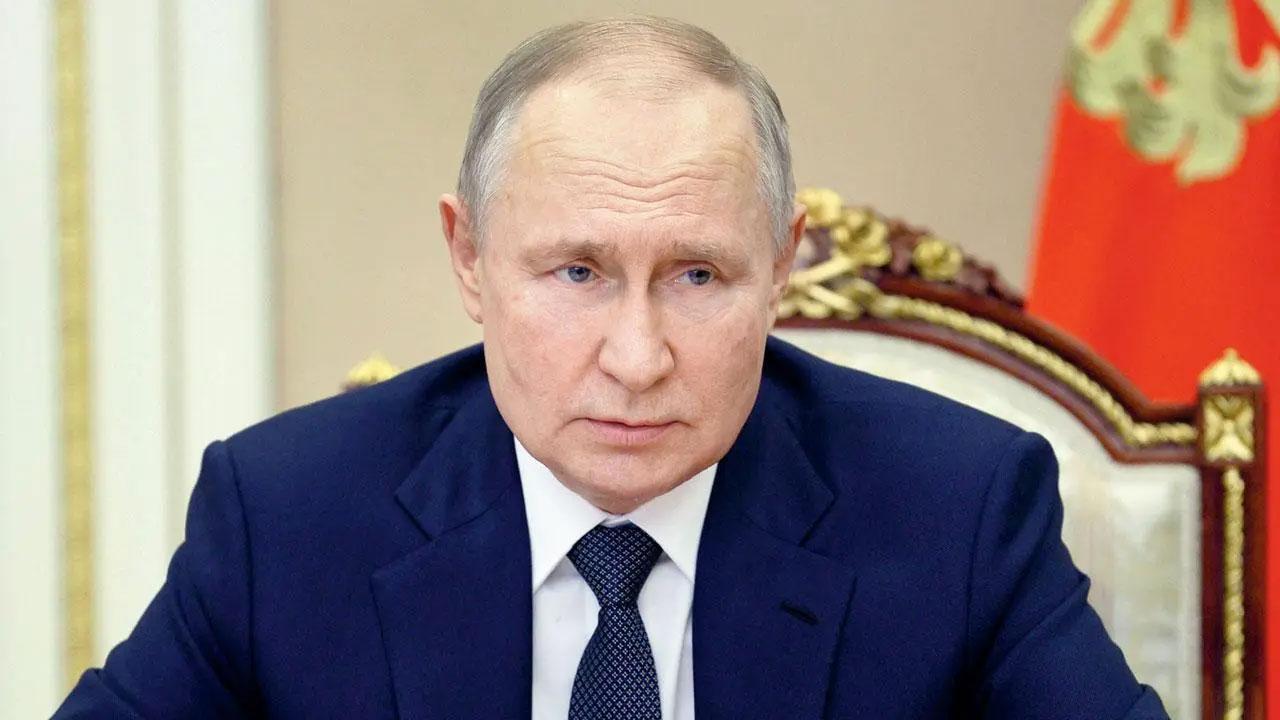Cluster munitions contain multiple explosives that are released over an area up to the size of several football fields

Vladimir Putin. Pic/AFP
Days after Ukraine received delivery of American-made cluster munitions, Russian President Vladimir Putin warned that Moscow too has a stockpile of cluster munitions and will 'consider using them" against Ukraine "if they are used against us," CNN reported.
ADVERTISEMENT
'Russia has a sufficient supply of various types of cluster munitions," the Russian leader said during an interview. 'If they are used against us, we reserve the right to mirror actions," CNN quoted Putin as saying. Notably, Washington's decision to send cluster bombs to Kyiv was controversial and criticized by human rights groups.
The weapons are particularly dangerous to civilians and non-combatants when fired near populated areas because they scatter explosive material, so-called 'bomblets," across large areas. Those that fail to explode on impact can detonate years later, posing a long-term risk to anyone who encounters them, similar to landmines, CNN reported.
Cluster munitions contain multiple explosives that are released over an area up to the size of several football fields. They can be dropped from a plane or launched from the ground or sea. The sub-munitions are released in flight and fall to the ground. They can range from the tens to many hundreds.
They are designed to explode on impact but as many as a third don't, and remain a deadly risk to civilians for years to come. 94 per cent of recorded cluster bomb casualties are civilians, of which almost 40 per cent are children, CNN reported. The danger posed by cluster weapons has prompted more than 100 countries ' including the United Kingdom, France and Germany ' to sign a treaty prohibiting their use.
US President Joe Biden has said that the decision to send cluster munitions to Ukraine was 'very difficult", but he opted to do so because Kyiv needs more ammunition to continue its fight to push Russian troops out of Ukrainian territory, CNN reported. A top official at the US Defence Department said Kyiv gave 'assurances in writing" that it would not use the cluster munitions in urban areas.
Putin further said that the Biden administration had called the use of cluster munitions a war crime and that he agreed with that assessment. Although Putin didn't specify the statement, but former White House press secretary Jen Psaki said last year at the outset of the conflict that reports of Russia's use of cluster bombs, if confirmed, would constitute a 'war crime", CNN reported.
Putin also claimed that Russia has not yet used cluster munitions, despite evidence to the contrary. Earlier in March, the United Nations said it had compiled credible reports that Russian forces had used cluster munitions in populated areas at least 24 times. It was also found last year that the Kremlin fired 11 cluster rockets at Kharkiv, Ukraine's second-largest city, during the war's opening days, CNN reported.
This story has been sourced from a third party syndicated feed, agencies. Mid-day accepts no responsibility or liability for its dependability, trustworthiness, reliability and data of the text. Mid-day management/mid-day.com reserves the sole right to alter, delete or remove (without notice) the content in its absolute discretion for any reason whatsoever
 Subscribe today by clicking the link and stay updated with the latest news!" Click here!
Subscribe today by clicking the link and stay updated with the latest news!" Click here!







